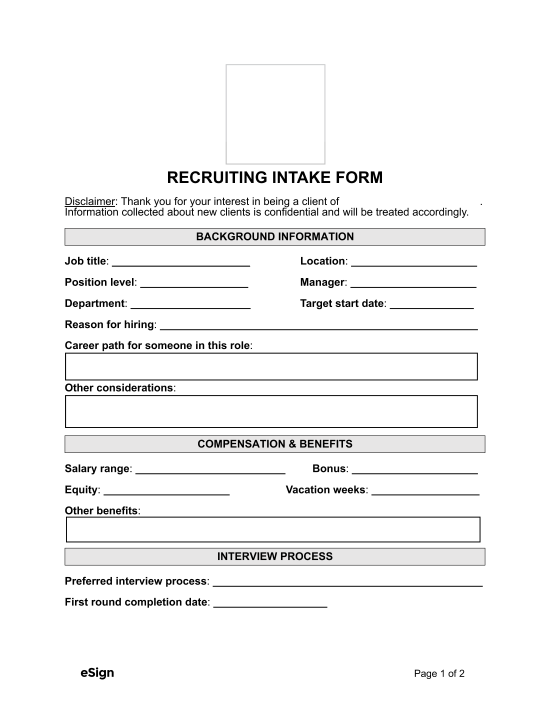Hiring Manager vs. Recruiter
A hiring manager is an employee tasked with vetting and ultimately hiring an individual for their company, while the recruiter’s job is to provide them with candidates to select from.
The recruiter is often an outside party brought in by the hiring company to serve as a bridge between candidates and employers.
What to Include
Background Information
This section provides the details of the position, including the job title, location, whether the position is permanent, and the deadline to apply.
Compensation
The recruiter will need to know the salary range for new hires and what benefits may be offered to them. By understanding the minimum and maximum salary the company is willing to pay, the recruiter may select candidates with different experience levels or salary expectations.
Job Requirements and Skills
The form should outline the position’s responsibilities and required skills. This information may also be divided into “required” and “nice-to-have” sections.
Sourcing Criteria
The recruiter needs to know where to look for candidates. The hiring manager should let them know whether there are internal candidates to consider, as well as which companies are worth targeting and which are not.
Assessments
Some positions may require candidates to complete tests to determine competency. The recruiter should be informed of any assessments that need to be carried out by potential employees.

